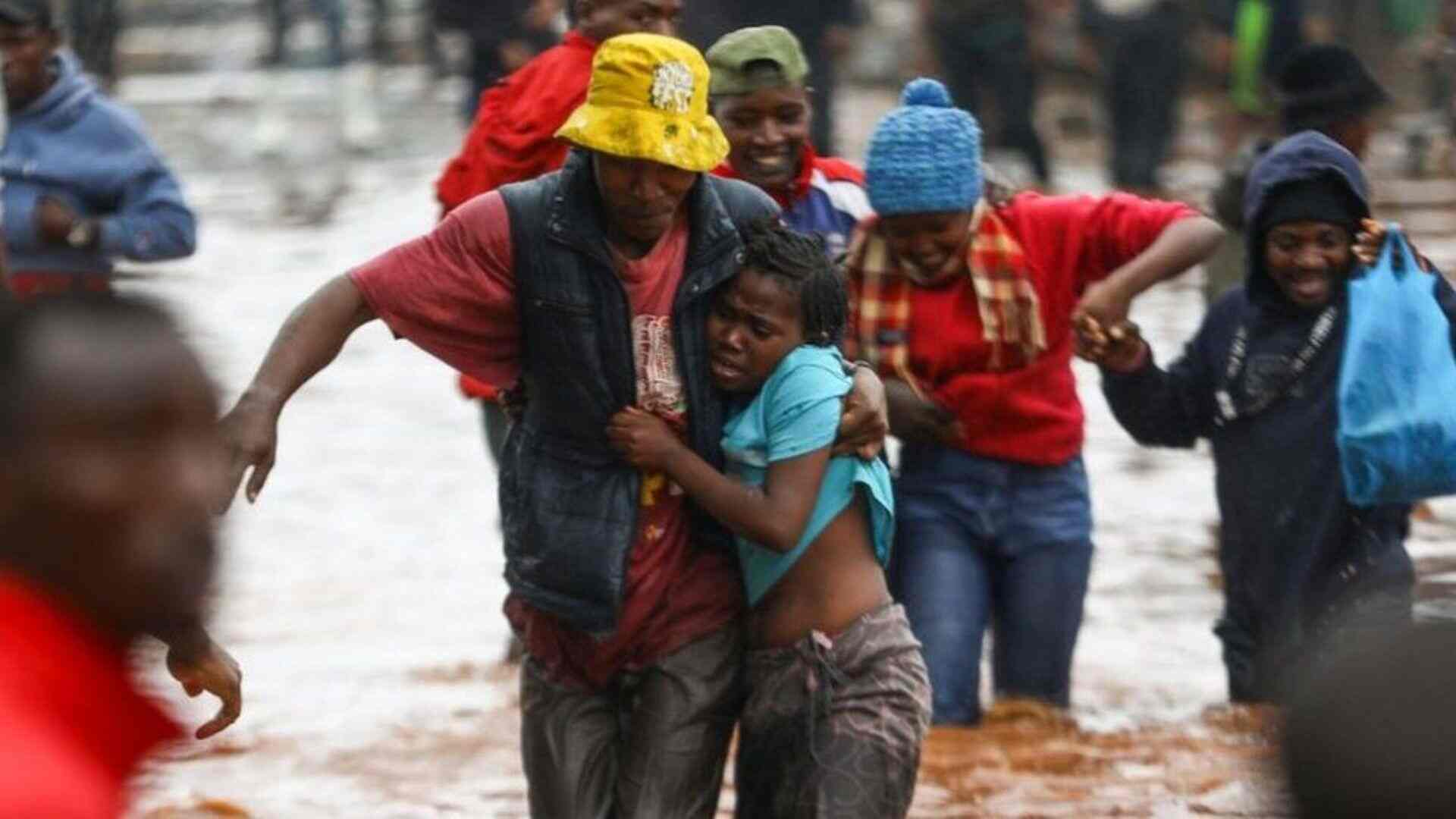The Kenya Red Cross Society (KRCS) announced that floods have claimed the lives of at least 38 individuals throughout Kenya, indicating a transition in the flood situation from emergency to disaster status. The torrential rains in the country have also disrupted regular business operations. Xinhua reported that over 38 people lost their lives in the severe rains in Kenya, leading to extensive property damage.
On Wednesday, at least one individual lost their life and six others were reported missing in Nairobi’s Mathare slums following heavy rainfall overnight. Xinhua reported that residents of this informal settlement, primarily comprising low-income earners, were stranded in their homes due to severe flooding. Additionally, other areas in Nairobi experienced flooded residences and businesses, inaccessible roads, and fallen trees after the intense rainfall overnight.
Certain areas became isolated from the city as stormwater inundated the streets. In Kitengela, a neighborhood south of the capital, the main bridge was flooded by the Athi River, resulting in thousands of businessmen and office workers being stranded, according to the same source.
“No vehicle is getting in or coming out of Kitengela. I have been waiting at this bus terminus for over three hours,” John Kimeu, an office worker, said.
Businesswoman Emily Kamau lamented that her day was ruined as she couldn’t purchase her groceries, as per the same source.
“My business premises were flooded two days ago, and I lost part of my stock. Today, the rains have cut me off. It is discouraging,” Kamau said.
In Kirinyaga County, located in central Kenya, more than 60 families were left homeless on Tuesday when the Thiba River overflowed, flooding their residences and businesses, Xinhua reported.
According to the humanitarian agency, since the commencement of the March-April-May rains, numerous counties have experienced adverse effects, including affected households, displacements, the creation of displacement camps, submerged arable land, affected businesses, and livestock fatalities.
As per the KRCS, the intense rains have impacted a minimum of 23 counties nationwide, resulting in over 110,000 individuals becoming homeless.
The humanitarian agency also reported that crops covering over 27,716 acres (approximately 112 square kilometers) have been devastated, and around 5,000 livestock have perished.
Venant Ndhigila, head of disaster operations with the KRCS, said, “The flooding situation is a disaster. The people most affected are those without alternatives. We are trying as much as possible with our teams to map the population at risk.”
Kenya Meteorological Department (KMD) indicated that the country has encountered unparalleled heavy rainfall, with certain regions receiving up to 200 mm within a single day. In response to the downpour, the department cautioned that flooding would likely occur nationwide, advising residents in low-lying and flood-prone areas to relocate to higher ground.
Authorities in Kenya, at both county and national government levels, have instructed residents in flood-prone regions to relocate to higher ground. Kindiki Kithure, the cabinet secretary for interior and national administration, urged residents residing near dams like Masinga in the eastern region and Thiba in the central region to move, as per the same source.
“Any further precipitation is likely to cause spillover, with greater flooding effects likely in settlements,” Kithure said in a recent statement.
Kithure additionally emphasized that the government remains on high alert, with a multi-agency team actively engaged in mitigation measures. According to an update from the Climate Prediction and Application Center (ICPAC) of the Intergovernmental Authority on Development (IGAD), Kenya is among the nations in the Horn of Africa grappling with exceptionally heavy rainfall this season, as reported in the same source.
“Temperatures in the countries are also warmer than average, with episodes of elevated levels of heat stress in northern South Sudan and southern Somalia,” the ICPAC added.










